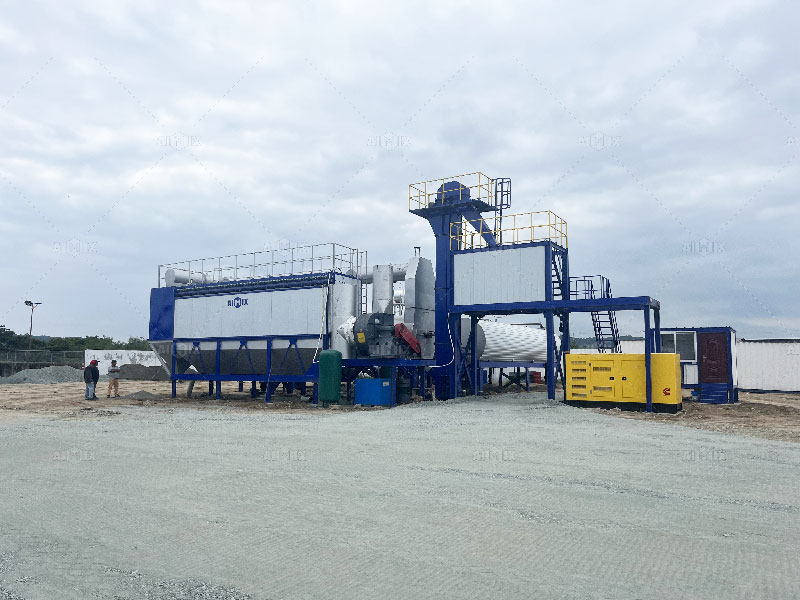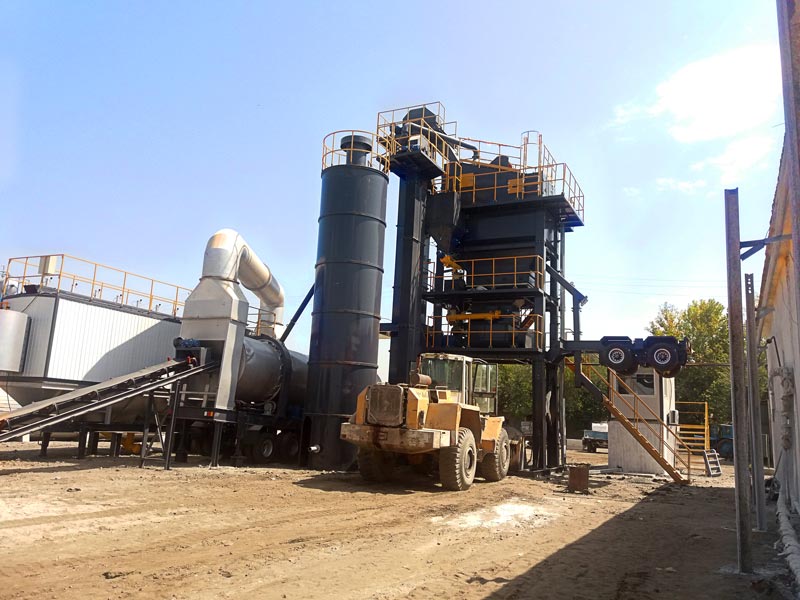In Latin America, the rapid growth in road construction projects is pushing contractors and governments to seek faster, more efficient solutions. One standout innovation is the emergence of one-button asphalt plants. These smart systems drastically reduce the complexity of plant operation, offering simplified controls, improved automation, and more reliable output. As a result, they are becoming the go-to solution in infrastructure development across the region—from highways and municipal roads to airport runways and remote construction sites.
What Makes One-Button Asphalt Plants Different?
Unlike traditional systems that require multiple personnel to manage different phases of production, one-button asphalt plants(planta de asfalto) consolidate all processes—feeding, heating, drying, mixing, and discharge—into a single intelligent control panel. This integration means that with just one command, the entire system starts or stops, minimizing human error and maximizing efficiency.
The technology behind this breakthrough includes programmable logic controllers (PLCs), touchscreen interfaces, remote access via the Internet of Things (IoT), and pre-set batching programs. These features enable:
- Consistent production quality through automatic material dosing
- Reduced training time and operator workload
- Automatic shutdowns and alarms for safety and maintenance
- Real-time monitoring of temperature, material levels, and system health
Such streamlined operation not only improves productivity but also ensures consistent asphalt quality—an essential factor for the durability of high-traffic roads.

Improving Road Construction Across Latin America
Across the region, governments and contractors face the dual challenges of expanding transportation infrastructure and keeping costs under control. Countries like Brazil, Colombia, Peru, and Mexico are launching nationwide projects to upgrade highways, build bypasses, and improve access to remote areas. However, limited labor availability, high material costs, and logistics issues in remote terrain often delay progress.
This is where one-button asphalt plants offer a strategic advantage. Their automation reduces the need for skilled labor, while their efficiency minimizes idle time and material waste. A recent case in Colombia showed that a project using a one-button mobile asphalt plant completed a 30 km highway segment 20% faster than originally scheduled, thanks to rapid setup and round-the-clock operation.
Mobility and Automation: A Powerful Combination
The ability to move an asphalt plant to various job sites is a game-changer. When combined with one-button control, a mobile setup offers unparalleled flexibility. Operators can transport the plant, reassemble it quickly using modular design, and resume production in just a few hours.
This mobility is especially valuable for projects that span multiple locations, such as rural road upgrades or emergency repairs after natural disasters. While the mobile asphalt plant price(planta de asfalto movil precio) may be higher than stationary models, the speed and versatility often justify the investment. Contractors no longer need to haul asphalt mix over long distances, which reduces fuel consumption, mix degradation, and transport time.

Advanced Features That Enhance Productivity
Modern one-button asphalt plants are equipped with advanced features tailored to Latin American project conditions:
- High-precision weighing systems: These ensure material ratios remain within tight tolerances—typically ±0.5% for aggregates and ±0.25% for asphalt binder—resulting in stronger, longer-lasting roads.
- Remote diagnostics and predictive maintenance: IoT sensors allow operators and service teams to monitor equipment health, schedule timely maintenance, and avoid unplanned shutdowns.
- Weather-resistant construction: Plants are built to handle high humidity, dust, and extreme temperatures often found in tropical or mountainous areas of Latin America.
- Expandable cold aggregate hoppers: With 20% greater capacity, operators can reduce refill frequency and maintain consistent production.
These features, combined with intelligent automation, contribute to continuous operation even in challenging conditions. For example, in the Andes region of Peru, contractors reported a 30% reduction in downtime after switching to automated systems equipped with predictive maintenance.
Durability That Matches Long-Term Infrastructure Goals
Latin American governments are placing increasing emphasis on the quality and longevity of road infrastructure. One-button asphalt plants and mini asphalt plant(mini planta asfalto) meet these expectations with robust materials and wear-resistant components. Features like high-durability mixing paddles, anti-corrosion coatings, and reinforced hot aggregate bins are now standard in many models.
Some heavy-duty asphalt plants are engineered to produce over one million tons of asphalt mix over their lifetime, making them a sound long-term investment for national infrastructure projects. Their ability to maintain high output with minimal interruptions makes them ideal for high-capacity applications such as expressways, urban highways, and even airport runways.
Balancing Cost and Capability
Cost remains a top consideration in equipment acquisition. Fortunately, automation is no longer limited to high-end models. Many manufacturers now offer compact, affordable options. A mini asphalt plant with smart controls can deliver sufficient output for local municipalities and private developers while staying within a tight budget.
When analyzing asphalt plant price(planta de asfalto precio)—whether mini, mobile, or large-scale—buyers in Latin America should evaluate not just the purchase cost but also lifecycle expenses: installation time, operating labor, energy use, maintenance, and downtime. Automation helps reduce these hidden costs, making modern systems more economical in the long run.
Conclusion: Smarter, Faster, and More Reliable Roads
The emergence of one-button asphalt plants represents a significant leap forward in road construction efficiency, especially in the evolving markets of Latin America. These intelligent systems offer more than just convenience—they bring precision, flexibility, and long-term value to every stage of the asphalt production process.
As governments and private developers continue to invest in transport infrastructure, the adoption of smart, automated asphalt plant solutions will accelerate. Whether it’s a mini asphalt plant for rural development or a high-capacity mobile unit for national highways, these innovations are paving the way—literally and figuratively—for a more connected, resilient Latin America.
